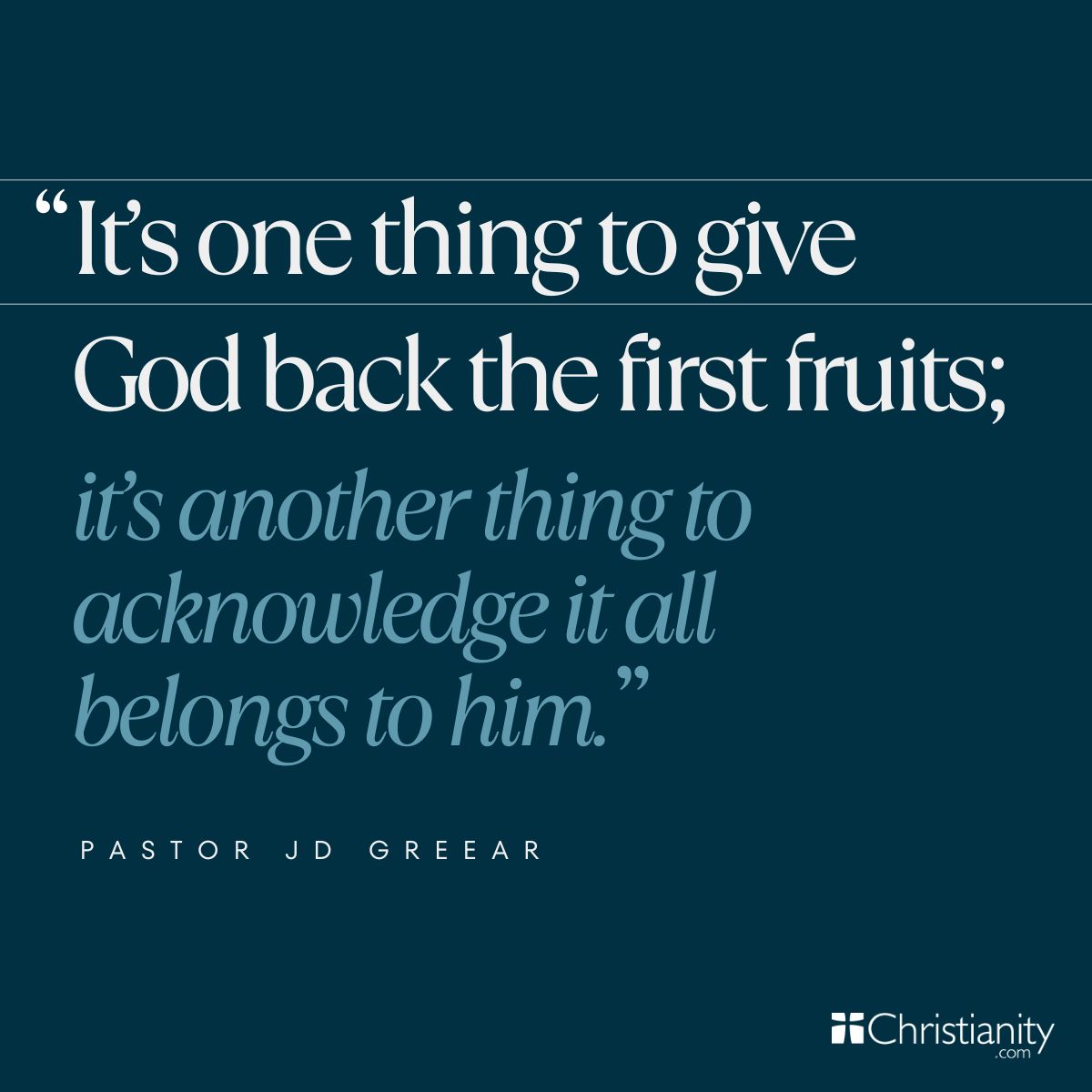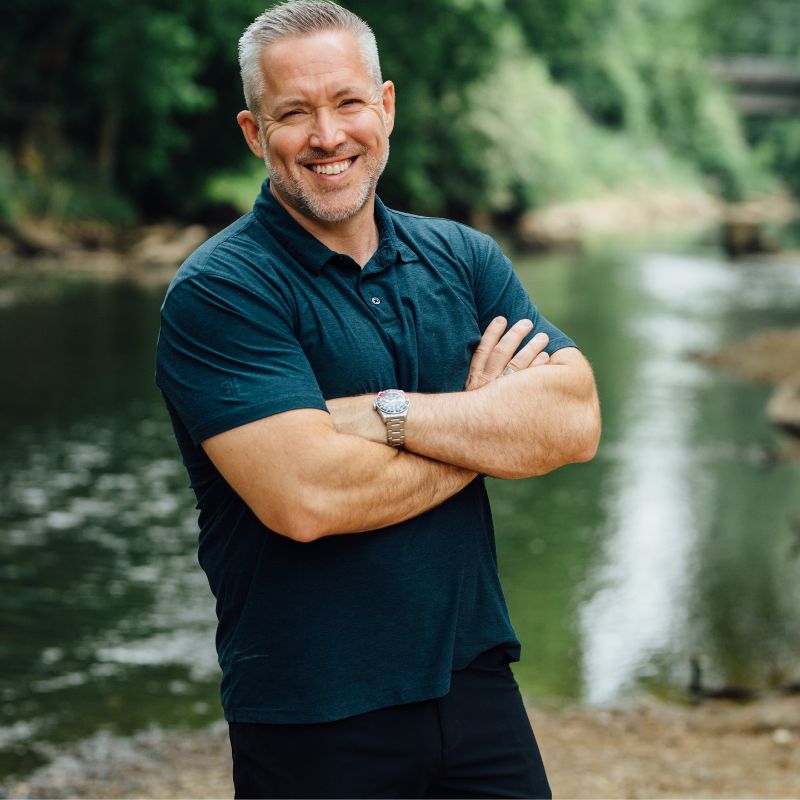
What do you actually believe about how Jesus taught money? How well do you understand the principle of ownership and the wisdom of eternal investment? The three-rung generosity ladder will tell you.
Rung 1: The Firstfruit Offering - The Tithe
The Bible teaches that the first 10 percent of all that we get should be given back to God in recognition that all of it comes from him. This is the most basic, fundamental premise of all stewardship, going back to Genesis.
God told Cain and Abel, the first two sons of Adam and Eve, that they were to give the first fruits of their produce or their livestock to him. Abel did that, but Cain waited until the end, after everything had come in and all his needs were met, and gave God some of the leftovers. The result? God accepted Abel’s offering and rejected Cain’s.
I know people object to the tithe a lot. They’ll say, “Well, pastor, you know, the ‘tithe’ isn’t in the New Testament; the ‘tithe’ is part of the Old Testament la,w and we’re no longer under the law; we’re under grace.” To which I say, “Yes, but the first fruits principle on which the tithe is based precedes the Law.” Not just with Cain and Abel, but with Abraham: hundreds of years before the law was given, Abraham gave God the tithe, or first 10 percent, of what God gave to him.
Jesus himself endorsed the tithe in Matthew 23:23: “Woe to you, scribes and Pharisees, hypocrites! For you tithe mint and dill and cumin and have neglected the weightier matters of the law: justice and mercy and faithfulness. These you ought to have done without neglecting the others.” If ever there was a moment to say, “And by the way, forget about the tithe,” this would have been it. But instead, he seems to have had a “both-and” approach: You should keep tithing and remember the weightier matters of the law, too.
And if you want to get technical about it, a quick glance at the New Testament shows that people weren’t giving less than 10 percent. They were giving a lot more. Some were giving half of their possessions. Some gave literally all of them.
Whenever Scripture talks about our first fruits, it doesn’t even use the language of “give”; it says “bring.” That’s an important distinction. We bring the first fruits back to God; we don’t give them to him. When we give something to someone, the implication is that it’s ours, and we’ve chosen to give it away. That’s not the language the Bible uses for the first fruits.
Think about what this means: If I borrowed your car and later you say, “Hey, I’d like that car back!” I don’t say, “OK, I’ll come by later and donate this car to you!” You’d say, “You can’t donate that to me. It already belongs to me. I want you to bring it back to me.” That’s how God talks about the first fruits—returning to God what he has already given to us.
For the Christian, tithing is not the ceiling or the end goal of generosity; it’s the floor. When we resent bringing the tithe to God, we’re not living in the reality that what is ours is his to begin with. Are we believing, in faith, that God will continue to provide when we return what he’s given us to him?
Rung 2: Stewardship Living - The Recognition That All of it Belongs to God
Many Christians get stuck on the first rung, treating the tithe like a 10 percent “God tax” they pay, and after that, they can do whatever they want with the remaining 90 percent—as long as it’s legal and moral, of course.
But if we are truly followers of Jesus, we’ll come to see all of our possessions as his. The first 10 percent automatically goes back to him, but beyond that, we move on to the second rung when we start to regard all of our possessions as belonging to God and ask God what he wants us to do with them.
When the rich young ruler came to follow Jesus, Jesus told him that if he wanted to be his follower, he’d have to give away all his money because his money was the most important thing to him. Jesus was not saying that every person who followed him from that point on has to give away everything immediately as some kind of buy-in, but in order to follow him, we have to surrender everything to him.
If Jesus asked this of us, would we do it? Have we honestly ever given all our resources to God, like a blank check, and said, “God, it’s all yours—what do you want me to do with this?”

Rung 3: Legacy Investing - The Investment for Eternity
Life is short, and we can’t take any of our possessions with us. If we learn anything from Jesus’ parable of the dishonest manager in Luke 16, it’s that the wisest thing to do with the majority of our money is to invest it in eternity. If our time on earth is short (it is) and eternity is forever (it is), shouldn’t we be thinking more about eternity than we do whatever time we have left on earth?
Some of us have gotten ourselves to Rung 1, some kind of percentage giving, and maybe even Rung 2, acknowledging all we have isn’t ours but God’s. But have we gotten to a place where we’re trying to transfer our treasures to heaven?
In Acts 4, we read about the generosity of the first Christians in the early church, where there was no needy person among them because they sold what they had—including their land—and distributed it amongst them. Nancy Guthrie says that we often overlook how big a deal it was that they sold their land. These early Christians were mostly Jews, and in first-century Israel, the land was important because it represented their stake in Israel’s future kingdom, the divine inheritance passed down through generations. This was more than just real estate. This was more than generational wealth. This was their very security, the essence of God’s blessing on their lives. So for them to give it away meant that they also gave away whatever earthly security they had for themselves and future generations.
Why would they do that? Because they now believed that Christ was their true inheritance, his kingdom was their eternal kingdom, and his mission was the legacy they wanted to invest in. He was the blessing they wanted.
It’s one thing to give God back the first fruits; it’s another thing to acknowledge it all belongs to him. What will your eternal legacy be?
Photo Credit: SWN Design

Pastor J.D. completed his Ph.D. in Theology at Southeastern Baptist Theological Seminary. He serves as a member of the Board of Directors of Chick-fil-A, serves as a Council member for The Gospel Coalition, and recently served as the 62nd president of the Southern Baptist Convention. Pastor J.D. and his wife Veronica are raising four awesome kids.
"Editor's Note: Pastor JD Greear's "Ask the Pastor" column regularly appears at Christianity.com, providing biblical, relatable, and reliable answers to your everyday questions about faith and life. Email him your questions at [email protected]."

.jpg)

.jpg)
